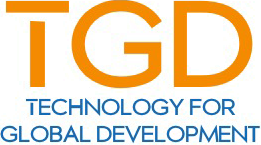
NGO programmes for biogas and solar energy
Husni Mubarok, internship, Indonesia
HIVOS is a Dutch organization that intensively engaged to investigate solutions of global issues. Issues related with poverty, climate change and repression, economic crises, gender equality, and growing inequality are the problems on which HIVOS intended to solve. These problems are complex and require an innovative solution. Therefore, HIVOS promoted courage, creativity, and knowledge as their innovative strategy to alleviate the problems. HIVOS is also cooperating with various stakeholders such as artist, lawyers, local NGO and community, government, and university in order to achieve their goals, build a green and open world.
HIVOS has six regional office branches all over the world one of which is located in Jakarta, Indonesia. This is the head quarter office for South East Asia region. One main concern of HIVOS works is related with climate and energy, thus in Indonesia HIVOS conducted several projects to promote sustainable energy. One of the project is to encourage utilization of renewable energy sources, specifically biogas. The initiatives were taken together with the government and later the government established the Indonesian Domestic Biogas Program. The program is called BIRU, abbreviation of Biogas Rumah which translates to Biogas for Home in English. The program has been conducted since 2009. Several stakeholders are cooperated with HIVOS in this project such as government institutions, SNV, and EnDev.
Another energy related project that was initiated by HIVOS in Indonesia is known as Sumba Iconic Island. Sumba Iconic island, initiated by HIVOS on 2009. The ultimate goal of the project is to make Sumba as a 100% renewable energy sources by the end of 2025. The implementation has been started since 2011, and up to the current date, it was claimed that the project has contributed 9.8% (all of it comes from RES) of total electrification ratio in Sumba by the end of 2014.
These two projects are currently the main energy related project that is being performed by HIVOS Indonesia. Hence, throughout the report two mains of HIVOS current energy related project would be discussed and the respective impact of the project to the quality of life and the sustainability of the project will be elaborated.
Objective
The main objective of the internship was to give the student a general understanding related with Sustainable Energy projects in Indonesia. Furthermore, the objective of the internship for the student is to obtain a learning experience from NGO. The internship gave a practical experience for the student and an understanding about the current practices of sustainable energy practice in developing country, especially in Indonesia.
Two main tasks were assigned to the student, the first one was to deliver an impact assessment of Biogas Rumah project for the stakeholders, in this case EnDev. A report containing the impact which was being affected by the implementation of the BIRU program from the beginning until the present day was made. The document consisted of analysis of the program’s impact ranging from the social to economic impact. In addition, the report would also show into what extent the program could affect the Biogas implementation in Indonesia, direct or indirectly.
The second task was mainly related with solar energy. HIVOS was conducted a project known as Sumba Iconic Island. The aim was to promote utilization of mix-energy sources e.g. from solar, micro-hydro, and wind, to remote/rural area. Due to the (geographic) nature of the project location, solar energy had become the most viable solution to be used as the main pillar of RE technology in Sumba. However, as NGO which mainly engaged with development project, technical and/or engineering aspects have not always been the strongest point of HIVOS. Hence, the student was assigned to give a general overview and basics of the engineering related problems.


